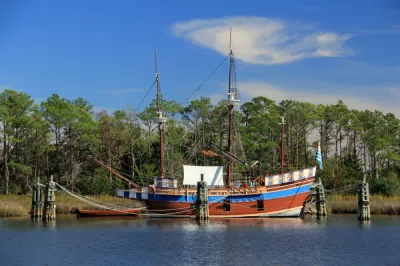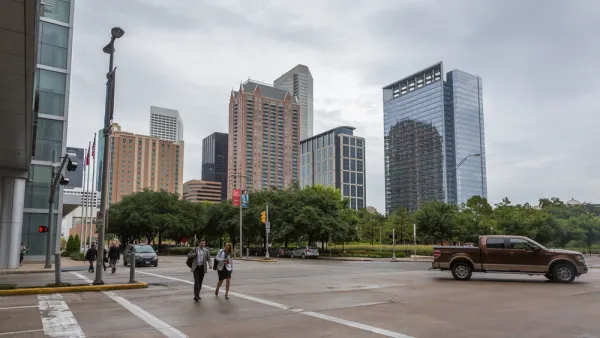A potentially radical point of view that must be considered by planners: moving the field forward will require soul searching that confronts an overcomes the disposition and exploitation that defined the past and continues to influence the future.

Annette Koh provides a treatise on "Decolonial Planning" a project that will require a "radical restructuring of finance, government, and our relationship with for-profit ventures."
Here, Koh connects the historical and the contemporary to describe the characteristics of planning as colonization and its continued influence:
In North America, European ideas about property and land rights allowed for the expulsion of indigenous peoples in the name of progress — with enclosure and privatization going hand in hand with public investment. Founding mythologies such as Thomas Jefferson’s yeoman farmer and the sturdy pioneer turning wilderness into productive farms valorized “improvement” as defined by colonial frameworks of capitalism and justified the displacement of those who had not properly utilized land by these imported standards. Fences and wheat signified “worthy” improvement, while relational knowledge of place, season, and kinship were invisible. Although disavowed today, urban renewal and the wholescale demolition of working class communities of color in the name of progress relied on the same disregard for social value. In present day discussions about the importance of activating “underutilized” public parks, planning yet again fails to see what already exists there in the rush to make spaces attractive to outside interests.
Koh lists some concepts from Hawai'i and New Zealand that could guide a reconstruction of legal and regulatory regimes, and redefine the frequently used term "highest and best use."
In fact, planners are already working on the practical project of decolonizing planning in Hawai'I, according to Koh:
I admit that I am not entirely sure how one goes about decolonizing a county planning department, but the head of Hawai‘i County’s planning department came to our Decolonizing Cities symposium in November 2018 and asked that very question. Planners at the Department of Hawaiian Homelands and in other community organizations are also figuring out how to sustain people’s connection to the ‘aina' by making operating expenses a self-generating fund that reinvests in local needs.
FULL STORY: Decolonial Planning in North America

Analysis: Cybertruck Fatality Rate Far Exceeds That of Ford Pinto
The Tesla Cybertruck was recalled seven times last year.

National Parks Layoffs Will Cause Communities to Lose Billions
Thousands of essential park workers were laid off this week, just before the busy spring break season.

Retro-silient?: America’s First “Eco-burb,” The Woodlands Turns 50
A master-planned community north of Houston offers lessons on green infrastructure and resilient design, but falls short of its founder’s lofty affordability and walkability goals.

Test News Post 1
This is a summary

Analysis: Cybertruck Fatality Rate Far Exceeds That of Ford Pinto
The Tesla Cybertruck was recalled seven times last year.

Test News Headline 46
Test for the image on the front page.
Urban Design for Planners 1: Software Tools
This six-course series explores essential urban design concepts using open source software and equips planners with the tools they need to participate fully in the urban design process.
Planning for Universal Design
Learn the tools for implementing Universal Design in planning regulations.
EMC Planning Group, Inc.
Planetizen
Planetizen
Mpact (formerly Rail~Volution)
Great Falls Development Authority, Inc.
HUDs Office of Policy Development and Research
NYU Wagner Graduate School of Public Service




























